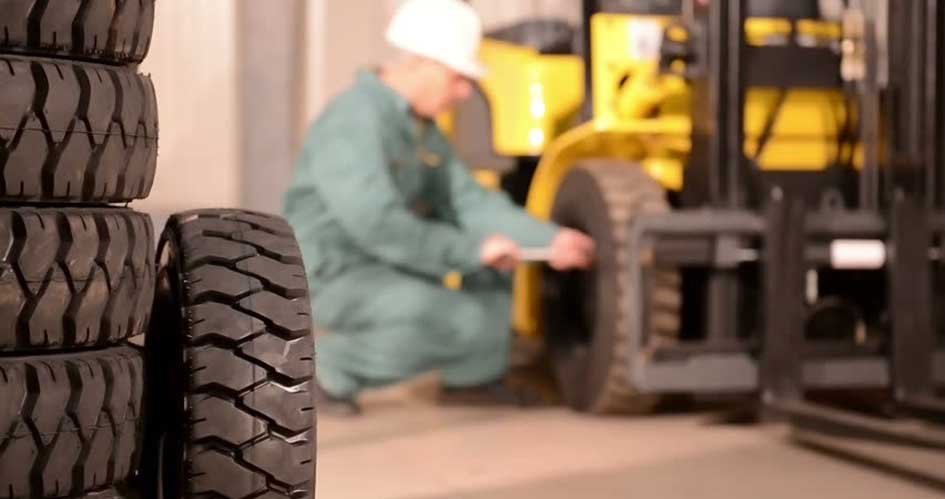Forklifts are powerful machines used across various industries, from construction sites to warehouses in Austin, to handle heavy loads and pallets. However, their operation can be hazardous without the proper safety protocols in place. In Texas, adhering to forklift safety regulations is not only crucial for maintaining a safe working environment but is also required by law. Businesses like Upright Forklift Repair in Houston and Humble, TX, play a key role in ensuring that companies meet these standards through repair services, safety training, and providing spare parts for forklifts.
This blog guide will discuss the essential forklift safety regulations in Texas, the importance of forklift certifications, and how operators can stay compliant with OSHA compliance regulations. We’ll also explore safety practices for both beginners and experienced operators, helping you create a safer workplace.
Overview of Forklift Safety Regulations in Texas
Forklift safety regulations are essential for protecting workers and preventing workplace accidents. In Texas, businesses are required to follow strict guidelines set forth by the Occupational Safety and Health Administration (OSHA) and local safety bodies. Compliance with these regulations helps reduce the risk of serious injury or fatal accidents caused by forklift operation. Operators must be properly trained in both theoretical knowledge and practical training, and certified, and companies must ensure that all machinery is regularly maintained.
Importance of Adhering to Safety Standards

Forklifts are powerful machines that can cause serious injury if not operated with precision and proper training. Safety standards are in place to prevent workplace accidents and to protect both the operator and those working around them. Without proper training, operators may struggle to navigate uneven surfaces, manage heavy loads, or respond to emergency situations.
Following safety protocols ensures that operators possess the necessary skills and competency for the safe operation of forklifts effectively, mitigating the risk of accidents and improving overall safety. Without certification and training, businesses expose themselves to potential hazards and legal risks, ultimately affecting the competence of their workforce.
Key Regulatory Bodies and Their Roles
In Texas, the primary authority for forklift safety is theOccupational Safety and Health Administration (OSHA). OSHA sets the standards for forklift operation, training, and safety protocols. Employers are responsible for ensuring that forklift operators are certified and adhere to OSHA regulations.
Additionally, the Texas Health and Safety Administration (THSA) supports local safety regulations, often tailoring them to suit the specific needs of Texas industries. Together, these regulatory bodies ensure that forklift operators maintain safe practices in all work environments, from warehouses to construction sites, to prevent accidents and injuries.
Beginner’s Guide to Forklift Safety
Forklift safety is critical, especially for beginners who may be new to operating these powerful machines. To ensure a safe working environment, it’s essential to have the right equipment, a solid understanding of safety protocols, and the proper documentation. This guide will help you understand what’s needed to stay compliant with forklift safety regulations.

Essential Equipment and Resources Needed
When operating a forklift, having the right equipment is crucial. Forklifts come in different types of forklifts, such as reach trucks, pallet jacks, and counterbalance forklifts, each designed for specific tasks and environments. Ensuring you have access to the appropriate forklift equipment for your workplace, along with spare parts and repair services, is essential for safety and efficiency. Companies like Upright Forklift Repair in Houston and Humble provide the necessary repair services and spare parts to keep forklifts in optimal condition, preventing potential malfunctions and accidents.
Step 1: Understanding Basic Safety Protocols
The first step in forklift safety is understanding and adhering to basic safety protocols. Operators should always check their equipment before use, ensure the work area is free of obstacles, and operate forklifts at safe speeds. It’s essential to maintain clear visibility, avoid overloading the forklift, and properly secure the loads. Basic training on these safety protocols can prevent accidents and ensure a safe working environment for everyone involved.
Step 2: Acquiring Necessary Safety Gear and Documentation
Acquiring official forklift certification is a must for any operator. Certification ensures that operators understand safety protocols and are qualified to handle various types of forklifts. Online course forklift training programs provide practical, hands-on instruction to help operators become competent in safe forklift operation, taking into account their prior experience. It’s also essential for businesses to keep documentation up to date to remain OSHA compliant. Proper certification and safety gear, such as high-visibility vests and hard hats, are vital for safe forklift operation.
Advanced Safety Measures for Experienced Operators
As experienced forklift operators with previous experience become more familiar with basic safety practices, they can focus on enhancing their safety measures to ensure even higher standards of operation. This is especially important in environments like construction sites and large warehouses, where the potential for accidents increases due to the complexity of tasks and machinery.
Upgrading Safety Practices
Experienced operators should constantly review and upgrade their safety practices. This includes staying updated on new OSHA regulations, incorporating advanced safety technologies like backup cameras or collision detection systems, and enhancing their load-handling techniques. Safety practices such as proper load balancing, effective communication with other team members, and adherence to speed limits in congested areas are essential for minimizing risks.
Regular participation in safety workshops and refresher training can help operators sharpen their skills and achieve successful completion of safety standards, preventing accidents. By continuously improving safety practices, operators can work more efficiently and confidently, reducing the chances of workplace accidents.
Regular Maintenance and Inspection Schedules

Regular maintenance and inspections are crucial to ensure forklifts remain in top operating condition. Experienced operators should adhere to scheduled maintenance checks, such as inspecting tires, checking fluid levels, and ensuring all safety features are working correctly. Forklift malfunctions can lead to serious accidents if not addressed promptly.
Upright Forklift Repair provide essential repair services to keep forklifts in optimal condition. Routine checks and immediate repairs can extend the lifespan of equipment and reduce the likelihood of breakdowns, ultimately contributing to safer workplace conditions.
Conclusion
Forklift safety is a crucial component of workplace safety in Texas. Adhering to safety regulations helps prevent serious injuries and workplace accidents. Businesses operating forklifts must ensure that their operators are well-trained and certified, their equipment is regularly maintained, and their safety practices are always up to date. Furthermore, investing in these safety measures provides a competitive edge in the market.
Upright Forklift Repair in Houston and Humble supports local businesses by offering certified forklift repair, training programs, and essential spare parts to ensure that forklifts operate safely and efficiently, ultimately reducing workplace risks and improving overall safety.
FAQ’s
Is a special license required for operating a forklift in Texas?
Yes, certified forklift operators in Texas must have official forklift certification, which verifies that they have completed the necessary training to operate forklifts safely at their own pace. The certification ensures compliance with OSHA regulations and guarantees that operators understand essential safety protocols, reducing the risk of workplace accidents.
What are the penalties for not following forklift safety regulations in Texas?
Failure to follow forklift safety regulations in Texas can result in hefty fines, workplace shutdowns, and serious legal consequences. OSHA fines for non-compliance can be significant, depending on the severity of the violation. Additionally, businesses may face increased insurance premiums or liability for accidents caused by improper forklift operation.
